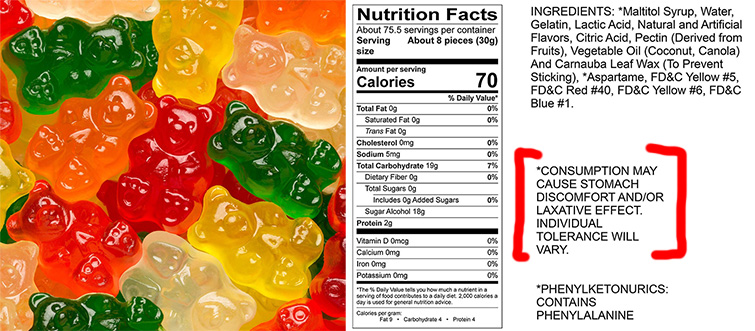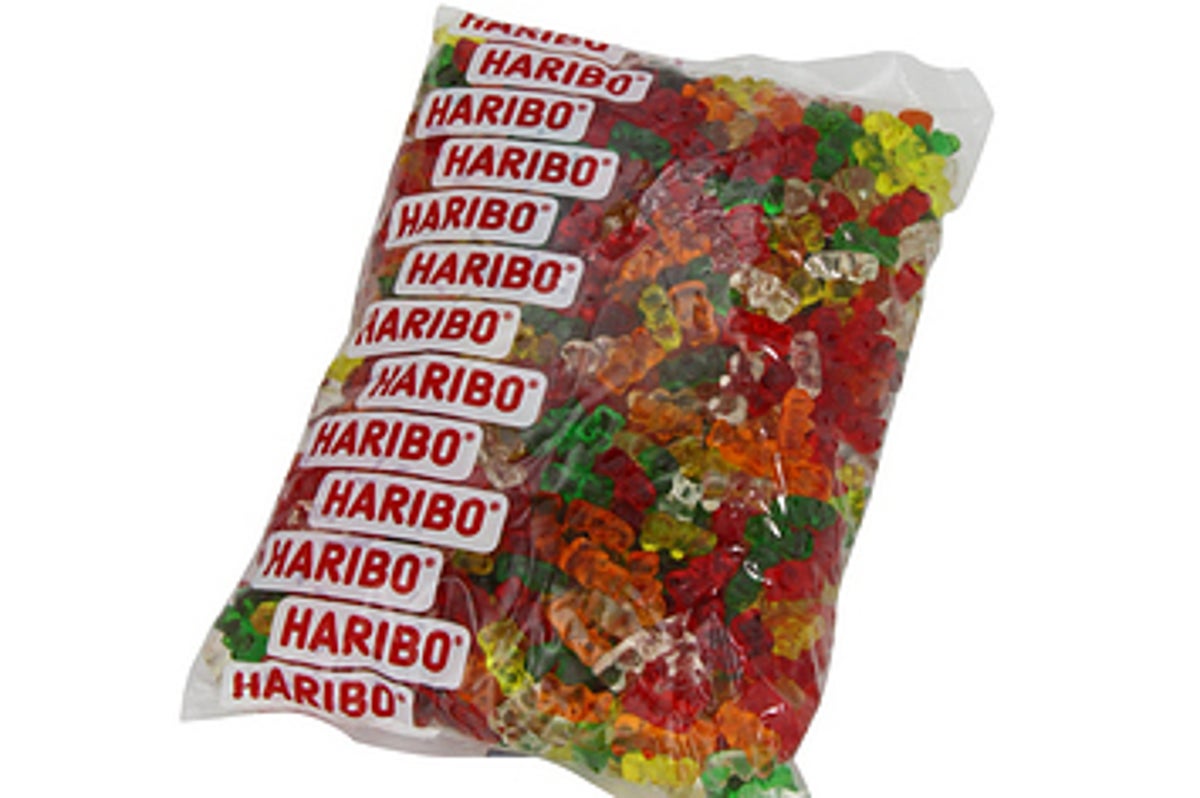The Haribo Sugar-Free Gummy Bears are a polarizing topic among candy lovers. Often marketed as a healthier alternative, these gummy candies have garnered attention not only for their taste but also for the dramatic and often humorous consequences they can have on the digestive system. This article delves into the reviews that have made these sugarless gummy bears infamous, exploring their ingredients, health implications, and societal perceptions. With commentary from health experts and a look at the emotional journeys of consumers, we’ll unravel the sweet and sour reality of Haribo’s gummy bears.

haribo sugar free gummy bears amazon review
The Ingredients: Unpacking the Sweetener
One of the key players in the Haribo Sugar-Free Gummy Bears is maltitol, a sugar alcohol that is often used as a sugar substitute due to its low caloric content. While it offers a sweet taste without the sugar, maltitol can have significant digestive effects, especially when consumed in large quantities. According to nutritionist and registered dietitian Lisa Moskovitz, “Maltitol can be harsh on the gastrointestinal tract, leading to issues like gas, bloating, and diarrhea if eaten in excess.”

haribo sugar free gummy bears amazon review
The Sweet Side: Taste Test Results
Despite the potential gut-wrenching side effects, many consumers rave about the taste of these gummy bears. A review from an enthusiastic Amazon shopper declares, “For taste, I would rate these a 5. So good. Soft, true-to-taste fruit flavors like the sugar variety.” In fact, this sentiment is echoed in various reviews, with many noting the sweet, authentic fruity flavor that rivals regular sugary candies. However, as one user humorously warns, “Just don’t eat the entire bag!”
The Dark Side: A Gastrointestinal Rollercoaster
While the taste may be appealing, the aftermath can be nothing short of catastrophic. Numerous reviews detail extreme reactions after indulging in too many sugar-free gummy bears. One user heartily describes their experience: “I had never felt such simultaneous relief and anguish in my life. After 30 minutes of chaos, I immediately went home, dug a hole in my backyard, and burned what remained of the package.”
A Comedic Take on a Tragicomic Experience
The humorous reviews surrounding Haribo’s sugar-free product have evolved into internet folklore. Many stories reflect a dark sense of humor, with users describing their experiences in vivid detail. Comedian Jim Gaffigan once joked about the aftermath: “You could use these gummy bears to torture information from terrorists,” further blurring the line between comedy and cautionary tales.
Balancing Health and Indulgence
The popularity of Haribo Sugar-Free Gummy Bears raises questions about our approach to health and indulgence. In an age of health consciousness, many seek alternatives that satisfy cravings without the guilt of sugar consumption. However, experts warn against the pitfalls of mindless indulgence in “healthier” snacks. “Even sugar substitutes can lead to overconsumption,” warns Dr. Rachel Hartley, a registered dietitian. “Balance is key.”
Health Consequences: What to Watch For
While occasional consumption might be harmless, regularly indulging in sugar-free options can lead to digestive distress. The FDA notes that the regular intake of large quantities of sugar alcohols may cause gastrointestinal disturbances. Thus, moderation becomes essential when navigating these sweet temptations.
Final Thoughts: Emotional Resonance and Community Connections
The saga of Haribo Sugar-Free Gummy Bears resonates deeply in online communities, sparking discussions about health, cravings, and the hilarious consequences of dietary missteps. As consumers share their stories, a sense of camaraderie forms—a collective understanding of the struggle between desires and consequences. Social media platforms, including Reddit and BuzzFeed, overflow with anecdotes that blend humor and relatability, encouraging laughter in the face of digestive disasters.
Sharing Knowledge: Empowering Consumers
As we navigate our consumption choices, sharing knowledge fosters a community that promotes health without foregoing happiness. The lessons drawn from the Haribo experience emphasize a vital message: moderation in all things, including indulgent treats. By prioritizing self-love and awareness, consumers can enjoy treats responsibly, ensuring that the experience remains sweet rather than sour.
FAQ: Common Questions About Haribo Sugar-Free Gummy Bears
Why did Haribo discontinue sugar-free gummy bears?
Haribo has not officially discontinued their sugar-free gummy bears, but following numerous complaints about the severe gastrointestinal side effects, they did place warnings on the packaging and saw a decline in popularity.
What is the sweetener in sugar-free Haribo gummy bears?
The primary sweetener in Haribo Sugar-Free Gummy Bears is maltitol, a sugar alcohol that can lead to digestive issues if consumed in large amounts.
Are sugar-free gummy bears safe to eat?
In moderation, sugar-free gummy bears are generally safe; however, excessive consumption can lead to significant gastrointestinal distress due to the maltitol content.
How many carbs are in sugar-free gummy bears?
Haribo Sugar-Free Gummy Bears contain around 28 grams of carbohydrates per serving, depending on the specific product variant.
Ultimately, the Haribo Sugar-Free Gummy Bears serve as a case study in the complexities of modern snacking—a blend of pleasure, caution, and, at times, humor. Recognizing the impact of our food choices contributes to a healthier, more enjoyable snacking experience.